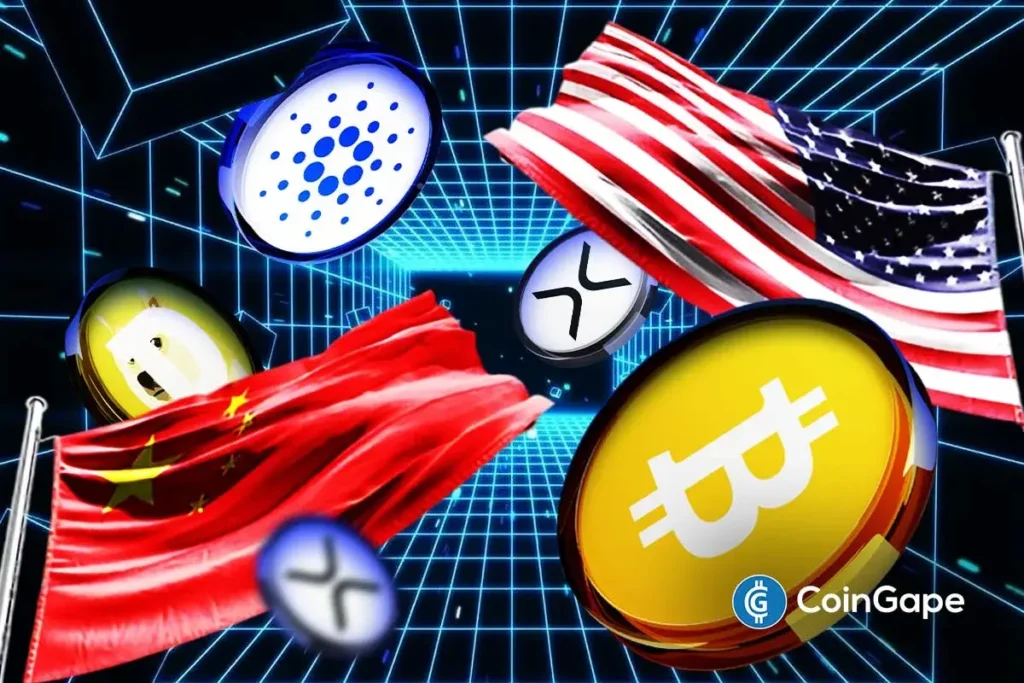China Takes Aim at US Dominance in AI and Crypto
China is positioning itself to challenge the United States’ leadership in the global cryptocurrency and tech landscape, particularly in artificial intelligence (AI). Recently, Premier Li Qiang advocated for enhanced international collaboration on AI, proposing the establishment of a global coordination center aimed at fostering inclusive development and ensuring that no single nation monopolizes AI advancements. This initiative is seen as a counter to the U.S. strategies that attempt to limit China’s technological growth amidst rising geopolitical tensions.
Call for Global Collaboration in AI Development
According to a recent Bloomberg report, Premier Li Qiang’s proposal emphasizes the importance of global cooperation in crafting a governance framework for AI. He remarked, “We should enhance coordination and alignment to establish a widely accepted global governance framework for AI at an early date.” While no specific nations were named, his comments are largely perceived as directed at the U.S., given the escalating tech rivalry. Li noted that concentrating key resources and capabilities in a limited number of countries would lead to a "technological monopoly," potentially restricting innovation and benefiting only a select few.
The Tech Rivalry Between U.S. and China
The U.S. and China are locked in a competitive race for supremacy in both the AI and cryptocurrency sectors. The U.S. aims to consolidate its position as a cryptocurrency hub, while China is rapidly expanding its blockchain and cryptocurrency initiatives. Both countries are among the highest holders of Bitcoin globally, with the U.S. holding approximately 200,000 BTC and China close behind at about 194,000 BTC. This ongoing competition suggests that both nations are considering strategic reserves in Bitcoin as they navigate this tech landscape.
China’s Strategic Pushback Against U.S. Dominance
Amidst the backdrop of the U.S.-China trade war, China is actively working to push back against American dominance in AI. The Chinese government is eager to prevent a situation where a technological monopoly stifles its own innovations and technological advancements. While the U.S. continues to pursue deregulation and enhance energy supplies for data centers, China is quickly advancing its own AI capabilities, spurred by milestones achieved through initiatives like DeepSeek. Li Qiang expressed China’s willingness to share technological advancements that can help countries, especially those in the Global South, strengthen their AI capabilities.
A Multilateral vs. a Unilateral Approach
The differing strategies of the U.S. and China showcase the underlying tensions in their tech development approaches. While China seems to favor a multilateral approach to international relations, the U.S. appears to be building a network of alliances aimed at countering China’s rise in AI. George Chen, a partner at the Asia Group, noted that as China develops its influence through initiatives like the Belt and Road Initiative, it may attract a wider array of countries. In contrast, the U.S. is likely to depend on alliances with strategic partners, such as Japan and Australia, to maintain its competitive edge.
The Future of Tech and Crypto Development
As both nations continue to innovate in AI and cryptocurrency, the future of technological advancement will likely hinge on international collaboration and competition. China’s push for a global governance framework in AI may pave the way for new partnerships and agreements that redefine how tech is developed and regulated globally. Conversely, the U.S. will continue to advance its interests through strategic alliances and regulatory measures, further fueling the rivalry between these two tech giants.
In conclusion, the ongoing competition between China and the U.S. in AI and cryptocurrency is indicative of broader geopolitical tensions. Both nations recognize the importance of technological dominance, and their strategies will significantly shape the global tech landscape in the years to come. As they navigate this complex terrain, the world watches closely, keen on understanding the implications for global innovation and economic stability.


